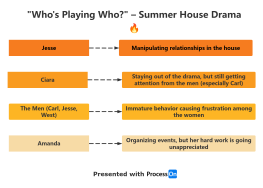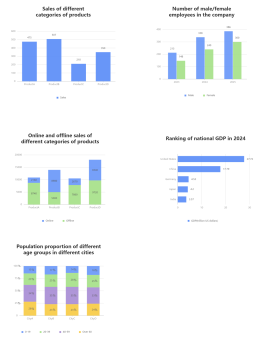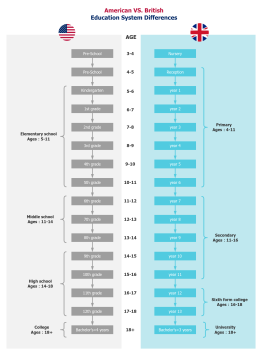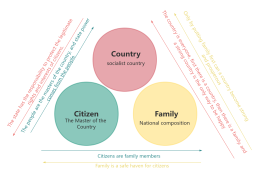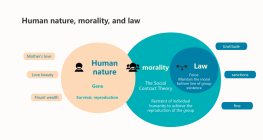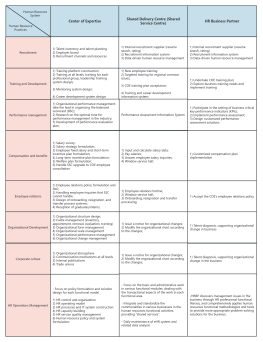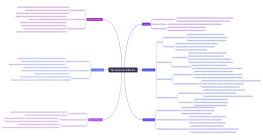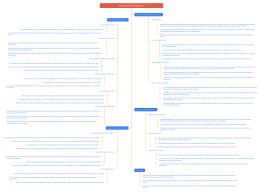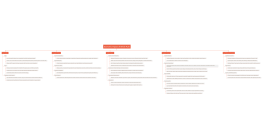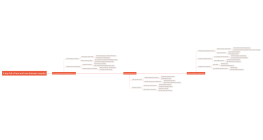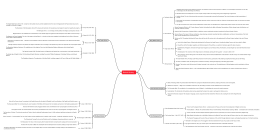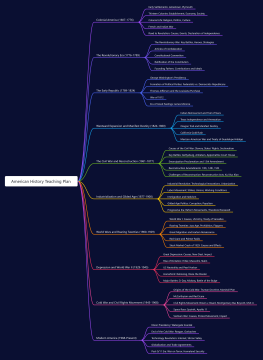Difference Between American & British Literature
2025-01-16 09:28:11 97 0 Report 0
0
Login to view full content
This mind map explores the 'Difference Between American & British Literature,' highlighting how both traditions, while sharing the English language, diverge in cultural, historical, and thematic contexts. British literature spans a millennium, reflecting themes of social hierarchy, colonialism, and the impact of the British Empire. In contrast, American literature emerges from the colonial period, focusing on independence, identity, and the American Dream. Both traditions feature notable authors and distinct writing styles, with British works often employing formal language and irony, while American literature embraces experimental forms and regional dialects, addressing issues of race, class, and national identity.
Other creations by the author
Outline/Content
Overview
Introduction
British and American literature, though both rooted in the English language, reflect distinct cultural, historical, and social experiences.
This distinction has led to variations in themes, writing styles, and the role of literature in shaping national identity.
Historical Context
British Literature
Spans a millennium of history from Old English literature to modern times.
The medieval period gave rise to works like *Beowulf* and the *Canterbury Tales*, while the Renaissance produced iconic figures like Shakespeare and John Milton.
The British Empire's rise and decline deeply influenced literature, particularly in the 19th and early 20th centuries.
The Industrial Revolution and Victorian era brought themes of social reform, urbanization, and the rights of the working class.
Post-World War II British literature explores disillusionment, existentialism, and critiques of the empire.
American Literature
Emerges from the colonial period, shaped by the quest for independence and the formation of a new national identity.
The American Revolution and subsequent establishment of the U.S. introduced literature that focuses on freedom, rebellion, and self-determination.
Themes of expansion, manifest destiny, and the frontier emerge throughout the 19th century.
The Civil War and post-slavery period lead to significant works concerning race, freedom, and inequality.
20th-century American literature tackles modernism, identity, social justice, and the effects of war and globalization.
Cultural and National Identity
British Literature
Reflects a long-standing cultural identity shaped by monarchy, aristocracy, and a global empire.
British literature is concerned with issues of class, social mobility, and the impact of aristocracy on individual lives.
Literary works often deal with colonialism, nationalism, and the British Empire's influence around the globe.
While there is pride in national identity, British literature also critiques societal structures and explores the decline of empire.
Key themes include the tension between tradition and progress, particularly in the 19th and 20th centuries.
American Literature
Develops from the revolutionary spirit of the 18th century and a desire to form a unique cultural identity distinct from Britain.
In the 19th century, American literature emphasizes the pursuit of freedom, equality, and individualism.
The idea of the 'American Dream' is central to the narrative, with a focus on success through hard work, though often critiqued for its limitations.
Literature frequently addresses race, inequality, and the tension between freedom and the history of slavery.
Throughout the 20th century, American literature wrestles with issues of modernity, materialism, and national disillusionment.
Themes and Motifs
British Literature
The role of monarchy and aristocracy is a recurring theme, with critiques of class and privilege in Victorian and post-Victorian literature.
Colonialism and empire are central themes in many British works, from the works of Joseph Conrad to the writings of Rudyard Kipling.
The British class system and its effects on individuals are explored in novels by authors like Charles Dickens and George Orwell.
Religion plays a key role in shaping moral codes and behaviors, especially in earlier works such as those of John Milton and William Blake.
Modern British literature, particularly after World War II, often focuses on the decline of empire and critiques of the British social order.
Themes of alienation, loss, and existentialism emerge post-WWII in works like those of Samuel Beckett.
American Literature
American literature emphasizes individualism, self-reliance, and the role of the individual in shaping national destiny.
Themes of rebellion against established authority, particularly against British colonial rule, run through the literature of the 18th and 19th centuries.
The American Dream, while celebrated, is often critiqued for its inaccessibility to marginalized groups.
Issues of race, class, and identity, particularly in post-slavery America, are crucial themes in African American literature and works like those by Toni Morrison and James Baldwin.
The theme of the frontier and the 'wild' West continues to influence American literature, particularly in the works of authors like Mark Twain.
Modern American literature often explores themes of alienation, fragmentation, and the disillusionment of the postwar era.
Writing Styles and Genres
British Literature
British literature includes a long tradition of formal poetry, particularly during the Renaissance, Victorian, and Modern periods.
The novel, as a genre, evolved rapidly in Britain, with writers like Jane Austen and Charles Dickens focusing on social realism.
British drama, particularly Shakespearean works, is influential, with complex characters and moral dilemmas.
Prose fiction in Britain often engages with social and political issues, as seen in the works of George Orwell and Virginia Woolf.
The use of irony, wit, and understatement is characteristic of many British literary works, especially in the 18th and 19th centuries.
American Literature
American literature is often more experimental, especially in the 20th century, as seen in the works of modernists like William Faulkner.
Short stories and essays are particularly significant in the American literary tradition, with Edgar Allan Poe and Ralph Waldo Emerson shaping these genres.
American poets like Walt Whitman and Emily Dickinson revolutionized poetry with free verse and unconventional structures.
Many works of American literature emphasize realism and social critique, with writers like John Steinbeck and Zora Neale Hurston focusing on social issues.
The American Gothic tradition, with its focus on the darker aspects of the national psyche, is seen in writers like Edgar Allan Poe and Nathaniel Hawthorne.
Language and Dialects
British Literature
British English, with its rich variety of dialects, plays a key role in literature, from the formal language of Shakespeare to regional dialects used in works by authors like Thomas Hardy.
British writers often employ a formal tone, particularly in the 18th and 19th centuries, with novels like those of Jane Austen demonstrating precise and elevated language.
The British class system is often reflected in the language used in literature, with different registers representing the social hierarchy.
American Literature
American English includes many regional dialects, reflecting the diversity of the country, such as Southern, African American Vernacular English (AAVE), and Native American languages.
The use of colloquial speech is common, particularly in novels by Mark Twain, who employed regional dialects to capture the voice of the American South.
The distinct American dialects are integral to the characterization and themes in American literature, reflecting issues of race, class, and regionalism.
Notable Authors
British Literature
William Shakespeare, John Milton, Geoffrey Chaucer, Virginia Woolf, Charles Dickens, Thomas Hardy, George Orwell, Jane Austen, Samuel Beckett, W.B. Yeats, T.S. Eliot.
American Literature
Edgar Allan Poe, Nathaniel Hawthorne, Herman Melville, Walt Whitman, Emily Dickinson, Mark Twain, F. Scott Fitzgerald, Toni Morrison, William Faulkner, Langston Hughes, Ralph Waldo Emerson.
Influence of Colonialism
British Literature
British literature reflects the complexities of empire, with authors like Joseph Conrad critically examining colonialism's dehumanizing effects.
Rudyard Kipling’s works, though often seen as glorifying empire, also deal with the tensions between British rulers and their colonies.
American Literature
American literature addresses the impact of colonization on indigenous peoples and the enduring legacy of slavery.
Authors like Toni Morrison explore the psychological and social toll of slavery on African Americans.
Conclusion
British and American literature are distinct in their origins, themes, and cultural underpinnings, though they share the same linguistic roots.
British literature often reflects a tradition of social hierarchy and imperialism, while American literature emphasizes the search for personal freedom and national identity.
Despite these differences, both traditions have profoundly influenced the global literary landscape and continue to offer insights into the human condition.

Collect
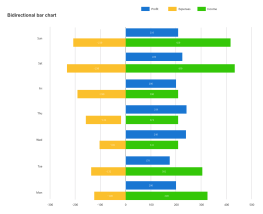
Collect

Collect
0 Comments
Next page
Recommended for you
More

